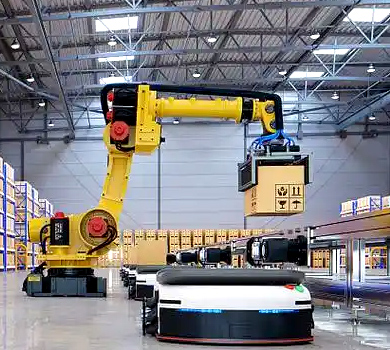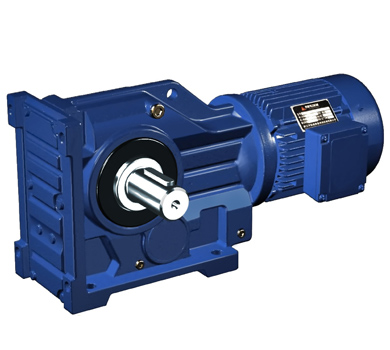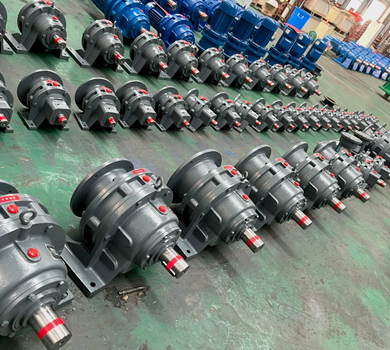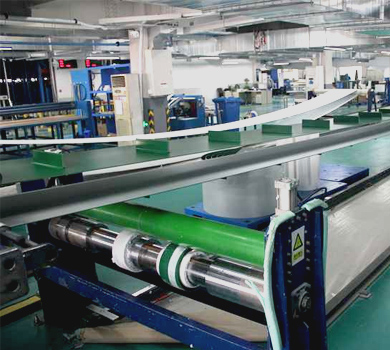Medical device manufacturing, particularly in the production of MRI (Magnetic Resonance Imaging) equipment, demands high precision, stability, and reliability in automated systems. A key component in these systems is the rotating platform, which must maintain exact angular positioning and smooth motion control during diagnostic procedures. As the industry evolves towards more compact, energy-efficient, and high-performance systems, the demands on gear drives become increasingly complex.
- Industry Background and Trends: The rotating platform in MRI machines is a critical assembly responsible for positioning patients and imaging components with sub-millimeter accuracy. It is driven by a combination of servo motors and precision gear reducers. Current trends include higher diagnostic accuracy, integration with AI imaging technologies, and reduced space requirements in healthcare facilities.
- Key System Components: Servo motors, gear reducers, linear actuators, feedback sensors, and control systems work in concert to ensure repeatable and accurate motion.
- Challenges in the Industry:
- High requirements for motion stability and precision due to the sensitivity of MRI imaging.
- Need for compact drive systems to minimize the overall size of the equipment.
- Operating in controlled environments (e.g., clean rooms) with strict EMI and contamination requirements.
- Long service life and minimal maintenance in a high-criticality application.
- Energy efficiency to support sustainable manufacturing and operation.
Key Role of Gear Reducers and Technical Requirements
In MRI rotating platforms, gear reducers are essential for translating high-speed, low-torque motor outputs into low-speed, high-torque rotational motion. This ensures that the platform can handle heavy loads with precision and maintain long-term stability under continuous operation. The core technical requirements for gear reducers in such applications include:
- Torque Density: Must support high torque in a compact form factor to align with modern equipment design trends.
- Backlash and Transmission Accuracy: Sub-arcminute backlash is required to maintain precise positioning of the rotating platform.
- Response Time: Quick response to dynamic load changes is critical to prevent imaging disruption during patient movement.
- Compatibility: Must interface with a variety of motor types and control systems used in MRI machines.
- High Load Capacity and Robustness: Capable of handling the weight and movement of the imaging gantry and patient table.
- Custom Gear Ratios: Flexibility to tailor gear ratios for specific rotational speed and torque profiles.
- Environmental Adaptability: Must operate reliably in temperature-controlled, high-humidity, and low-noise environments typical of MRI rooms.
- Long Service Life: Designed for long operational periods with minimal need for maintenance or replacement.
- High IP Rating: Protection against dust and moisture ingress to meet clean room and sterility standards.
Waimica Precision Gear Reducer Solution
Waimica has developed a high-precision planetary gear reducer specifically tailored for medical automation applications, including MRI rotating platforms. This solution is engineered to directly address the performance and reliability challenges of the sector.
- Structural Design Highlights:
- Compact and lightweight design for integration into limited spaces.
- Modular construction for easy customization and maintenance.
- Flexible mounting options, including flange, foot, and coupling types, to match various installation requirements.
- Low-noise operation to maintain a quiet and patient-friendly environment.
- Performance Parameters:
Parameter Value Output Torque Range 50 Nm to 2000 Nm Backlash ≤ 1 arcmin Transmission Efficiency ≥ 95% Input Flange Type ISO 9445, DIN 546, and custom designs Speed Range 1 to 1000 RPM Mounting Options Flange, foot, and coupling Operating Temperature -20°C to +80°C IP Rating IP65 (optional IP67 for clean room environments) Lifetime ≥ 20,000 hours - Special Operating Condition Support:
- Custom sealing options for use in clean room environments, preventing dust and moisture contamination.
- Thermal resistance features to ensure stable performance in temperature-controlled settings.
- Vibration-dampening housing design to minimize mechanical noise and ensure smooth motion.
- Material selection includes medical-grade stainless steel and other corrosion-resistant alloys, suitable for frequent sterilization.
Conclusion and Waimica Brand Value Summary
Waimica’s precision gear reducers offer a compelling solution for the demanding requirements of MRI rotating platform automation. The combination of high torque density, sub-arcminute precision, and modular design ensures seamless integration into modern medical device production systems. Our commitment to customization allows us to meet unique gear ratio and mounting needs for each customer’s specific MRI configuration.
As a high-performance and cost-effective provider from China, Waimica stands out as a strong alternative to traditional European or Japanese brands. Our products are not only technically competitive but also offer superior value in terms of delivery lead times and on-demand engineering support.
Looking ahead, we anticipate a continued trend towards higher automation, more compact MRI systems, and greater integration with AI-based diagnostics. Waimica is positioned to support these developments with advanced drive solutions and long-term partnership capabilities, helping medical equipment manufacturers worldwide achieve operational excellence and innovation leadership.







